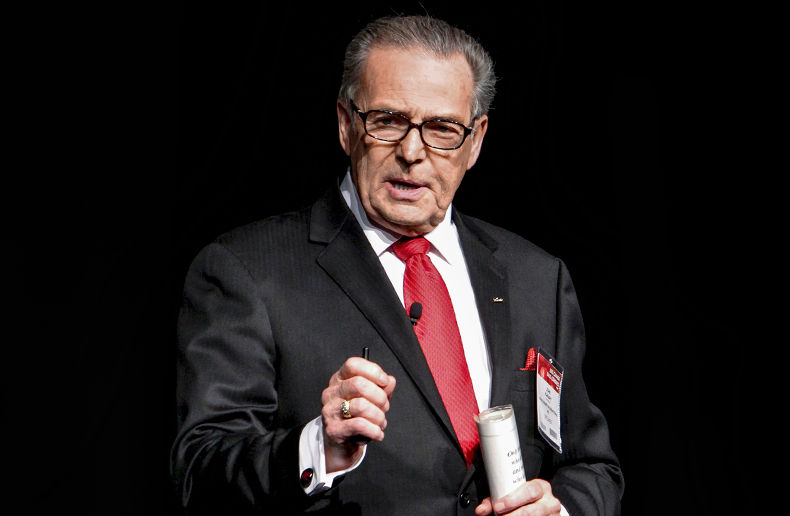While many of the major insurers hit rough waters in 2008, results signal the opposite trend for a number of small mutual companies and other niche players which were buoyed by specialized markets and conservative investments.
Unity Life demutualized last year, but its status of niche player continues to serve it well. Since being acquired by the American fraternal benefits society Foresters in 2008, Toronto-based Unity Life has been receiving financial support from the parent company, which it is using to make acquisitions.
In 2008, Unity Life took over the Canadian operations of Washington National, the business segment of GeniSys Management Solutions, and the Canadian insurance operations of Forethought Financial Group.
In May this year, Unity Life bought out MetLife Canada, a subsidiary of the American giant MetLife, which included its 100,000 life and health insurance policies, and a handful of group annuity contracts.
Over the past few years, Unity Life bought the individual life and accidental death insurance policies from the Canadian Professional Sales Association, along with the remaining Canadian business of Prudential of America.
The Ontario insurer continues to specialize in particular niches such as creditors and insurance, term at preferred rates and simplified issue policies for the family market.
"Given what's happening in the economy, 2008 will go down in the records as the most profitable year ever. We did better than our planned profits," said Tony Poole, President and CEO of Unity Life.
Mr. Poole credits the enviable 2008 results mainly to the acquisition of Forethought and Washington National. Net earnings surged by 60.0%, to reach $6.764 million in 2008 versus $4.227 million in 2007. Return on shareholders' equity was 10.6% in 2008.
"Both acquisitions played a role... Second, we have a very conservative investment portfolio and we haven't been impacted on the equity side. We don't do segs (segregated funds), so we didn't have the need to shore up the reserves. We're impacted to a degree because of downgrades in our corporate bond portfolio. But we did so well on insurance side that it covered the downturn in investment side," Mr. Poole explains.
He says the company's success is the result of the niche strategy introduced eight years ago. "If you're going to be a little or mid player, you need a unique strategy that brings an added value."
Mr. Poole is banking on products that may appear unremarkable, but that stand out either because of their design or distribution. For example, Unity Life has one of the rare term products that uses a debit-credit system to grant preferred rates. This means, for example, that clients with high cholesterol but a spotless family history would not be penalized to the same degree. Under this system, 80% of non-smoking insured obtain a better rate than the standard category.
As for added value, Unity Life policyholders can obtain free benefits usually reserved for members of the fraternal society Foresters. They include monthly payouts for children that lose a parent, an orphan scholarship program and members' benefits in case of critical illness or terminal illness.
Richard Gagnon, President and Chief Executive Officer of Quebec-based mutual insurer LS Mutual (also known as La Survivance in Quebec) believes specialization was the key to its successful year.
Net earnings for LS Mutual grew by almost 52% between 2008 and 2007, from $1.660 million to $2.519 million. The Quebec-based mutual also delivered its members a 13.2% return on their investment in 2008, quite respectable under the circumstances. LS Mutual maintained its liquidity ratio at 195% in 2008 (minimum continuing capital and surplus requirements or MCCSR, whose target level is set at 150% by the Office of the Superintendent of Financial Institutions).
Mr. Gagnon weathered the economic slowdown by focusing on his main strategy: expanding the product line each year by trying to fill "holes" in the market.
"The growth of our gross income is powered directly by our living benefits niche," Mr. Gagnon points out. LS Mutual acquired TourMed from ACA Assurance and this travel insurance block drove nearly half of the 40% growth in sales volume between 2007 and 2008. During this period, 15% of the mutual's travel insurance sales came from Ontario, a key province in its development plan outside Quebec.
Assumption Life is also pleased with its results. The small New Brunswick-based mutual reported income of $94.5 million in 2008 and policyholders' equity of $81.1 million, increases of nearly 4.1% compared with 2007.
The mutual also posted net earnings of $4.3 million in 2008 for growth of 7.4% versus 2007. The insurer's annual report confirms that it reached a new record in life insurance, with sales of $4.4 million in 2008, 10.7% higher than in 2007.
President and Chief Executive Officer Denis Losier attributes this financial vitality to Assumption Life's Canada-wide presence and the continuous expansion of its distribution network. "Some 50% of Assumption Life's sales currently take place outside of Atlantic Canada. Its total number of advisors also increased by 23%. In addition, to solidify its captive sales network in New Brunswick, the company created the new sales subsidiary AVie through a strategic alliance with Acadie Vie," the insurer confirms via a press release.
Net earnings decline
Other mutuals claim to have done well despite a decline in earnings. Net earnings at La Capitale plunged to $39.420 million in 2008 from $65.805 million in 2007, a dramatic drop of 40.1%.
Robert St-Denis, President and Chief Operating Officer of La Capitale Financial Group, puts the results in perspective. "Growth was robust. What hurt was the 50% increase in taxes in 2008 because of changes in the Federal tax laws that will take effect later."
La Capitales' income slipped by 2.7%, from $1.090 billion to $1.061 billion between 2007 and 2008. La Capitale maintains an MCCSR of 216%.
Its life and health insurance sector saw solid results. In individual insurance, combined sales of La Capitale Civil Service Insurer, La Capitale Insurance and Financial Services and its subsidiary, Penncorp, approached $14 million, equal to growth of 13.2% between 2007 and 2008.
Sales growth outside Quebec was particularly strong, Mr. St. Denis confirms. It's subsidiary Penncorp hiked its sales volume by 19.2% in 2008 versus the previous year. "Penncorp hired 20 representatives, and since 2008, Penncorp representatives can access all La Capitale products," Mr. St. Denis explains.
"In group insurance, our sales outside of the public and para-public sectors were up 27.4% from 2007. I was worried about group because of difficulties in the manufacturing sector, but these difficulties were offset by new sales," he continues.
Mr. St. Denis proclaimed the 2008/2009 RRSP campaign the best one ever. "Up to now, we have sidestepped the market turbulence, and we have just had our best year in group savings." Because much of La Capitale's investments are in stock market GICs, the guaranteed portion of the funds dampened the effects of the market meltdown, as did new sales.
At UL Mutual, net earnings rose by 10.1%, from $11.465 million in 2007 to $12.625 million in 2008. However, income was dragged down by a decline in investment income, which dropped from $93.605 million in 2007 to $80.708 in 2008, a 16.0% decrease. The return on equity of the mutual's members was 13.0%. The Quebec-based mutual had a solvency ratio of 300%.
"The stock market crisis also ushered in a host of buying opportunities for investments in 2008, with a particularly favourable window in October," Jacques Desbiens, President and Chief Executive Officer of UL Mutual explains.
Business development remained vigorous in 2008, but 2009 is getting off to a rocky start, although Mr. Desbiens says the results are in line with his objectives. "People are putting off buying insurance. But investment product sales are strong."
Mr. Desbiens points out that buying blocks of business has been the main growth engine since he took the helm of the mutual in 1993. "When I got there we had a $13 million surplus. During the summer we passed the $116 million mark. But 2008 was calmer in acquisitions. Our growth came mainly from our operations," he says.








